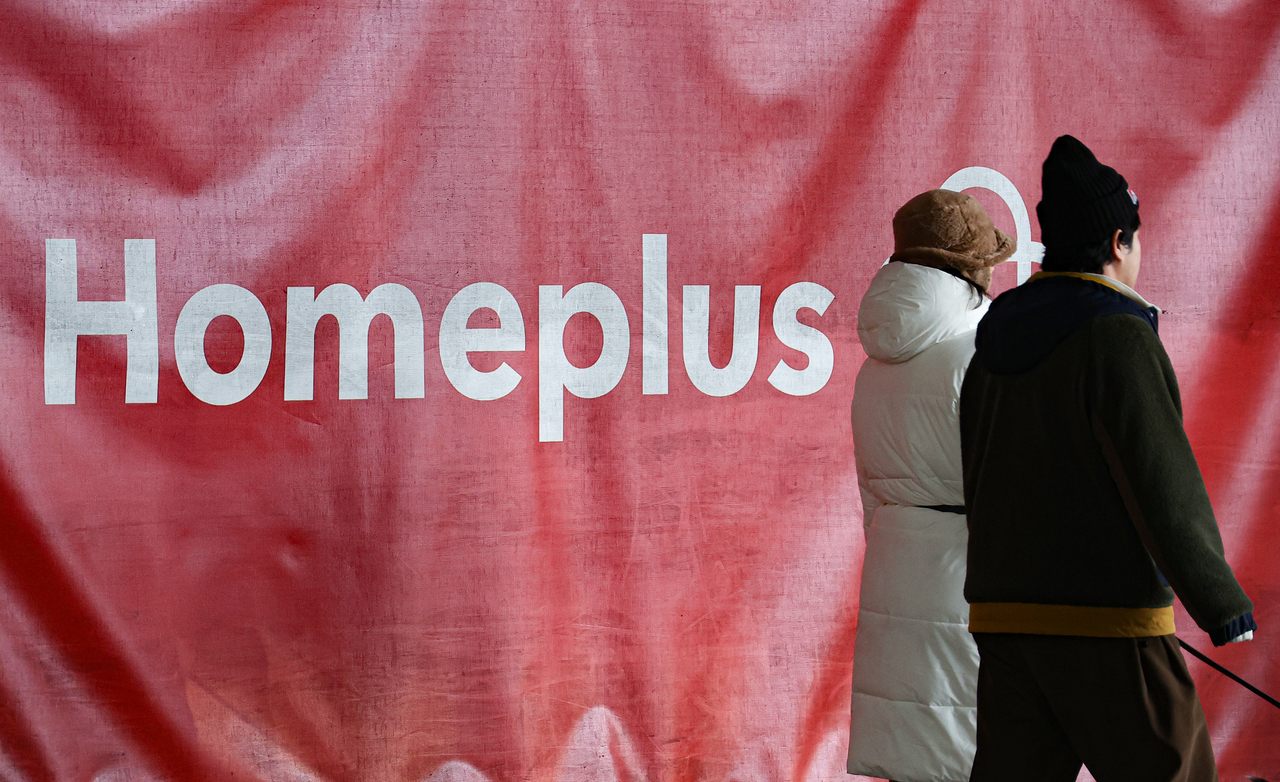Homeplus’ W2tr debt is manageable, no systemic risk: analysts

As South Korea's retail industry grapples with the shock of its second-largest supermarket chain entering court rehabilitation, market watchers largely believe that Homeplus' debt isn’t substantial enough to trigger a sector-wide crisis or destabilize the local financial industry.
Industry reports on Wednesday show that Homeplus holds around 2 trillion won ($1.38 billion) in debt from local financial institutions, with Meritz Financial Group being the largest creditor at 1.2 trillion won, followed by Hanwha Investment & Securities at 150 billion won and the banking sector at a combined 110 billion won.
Homeplus' exposure came into focus as it began court-led rehabilitation on Tuesday, a preemptive move to address a potential funding crunch following a recent credit rating downgrade. The court immediately approved and initiated the procedure.
The largest single creditor Meritz Financial Group holds approximately 1.2 trillion won in mortgage loans extended to Homeplus by three of its subsidiaries, secured through beneficiary certificates from a trust contract between Homeplus and a real estate trust company.
Despite the substantial amount, Meritz remains confident in Homeplus' ability to recover. "The collateral value is estimated at around 5 trillion won, and we anticipate no issues in recovering the funds," a Meritz official said, adding that the exercise of its senior beneficiary rights is unrelated to the rehabilitation process.
When a company begins corporate rehabilitation, its entrusted assets are considered the trustee's property and are not subject to the company's rehabilitation process.
Korea Investors Service, the Korean arm of global credit ratings agency Moody's, also assessed that Homeplus’ rehabilitation process "will have limited impact" on Meritz, noting that the real estate collateral shows a relatively "good" loan-to-value ratio.
Korea Investors Service downgraded Homeplus' rating from A3 to A3- on Friday, prompting the company to enter rehabilitation.
The banking industry’s exposure to Homeplus, totaling 110 billion won — comprising 55 billion won from KB Kookmin Bank, 28 billion won from Shinhan Bank and 27 billion won from Woori Bank, all in short-term loans — is expected to have a limited impact from the retailer's credit event.
"These three banks have a combined loan portfolio of about 983 trillion won, with their loans to Homeplus making up just 0.01 percent of that total," said Kim Jae-woo, a researcher at Samsung Securities, adding that even with the retailer’s loan provisioned, the impact on lenders’ first quarter earnings would be minimal, around 1-2 percent.
While concerns grow that Homeplus' credit issue could trigger an industrywide crisis, similar to Tmon and WeMakePrice’s liquidity crunch last year, market watchers see this as unlikely.
“The short-term impact on the retail industry is expected to be limited,” said NH Investment & Securities analyst Joo Young-hoon. “Homeplus stated it will continue normal operations across all retail channels regardless of the corporate rehabilitation process, meaning there will be no change in the industry’s competitive landscape.”
Homeplus initiated rehabilitation preemptively, unlike Tmon and WeMakePrice, which were already struggling with capital erosion when they applied for corporate rehabilitation. The Seoul Bankruptcy Court also acknowledged the proactive action when approving the rehabilitation process on Tuesday, citing Homeplus' scale and transaction volume as reasons for not appointing a trustee.
Industry rivals such as E-Mart may even benefit from the situation, analysts anticipated, as Homeplus is expected to see further declines in operating revenue and market share as it goes through the debt restructuring process.
Homeplus is set to submit its rehabilitation plan by June 3.
Meanwhile, Korea Ratings, another local credit rater, downgraded Homeplus’ credit rating from A3- to D on Wednesday, following its filing for corporate rehabilitation.
jwc@heraldcorp.com






